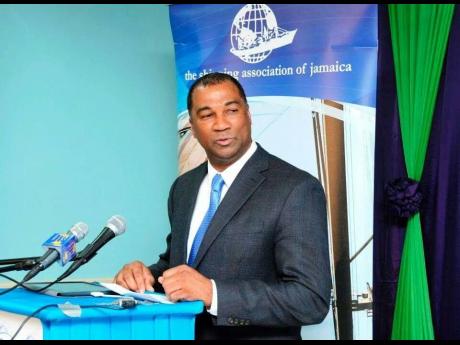Caribbean Research Institute launched at CSEC
“Good decision-making requires reliable and relevant data,” declared William Brown, president of the Shipping Association of Jamaica, during the launch of the Caribbean Research Institute (CRI) at the Caribbean Shipping Executives Conference (CSEC) that was staged virtually by the Caribbean Shipping Association (CSA) on May 24 and 25.
ACCURATE AND TIMELY INFORMATION
Brown, who is also chairman of the CSA Group D comprising freight forwarders/non-vessel operators, revealed that the CRI will be providing CSA members and global subscribers with biannual reports that will contain accurate and timely information of special interest to maritime organisations. He explained that the initiative came out of discussions with Ricardo Sanchez, senior economic affairs officer of the Economic Commission for Latin America and the Caribbean regarding the need for specialised regional research that can provide maritime data and analyses that are vital to modern, knowledge-based economies.
The CRI will provide another stream of income for the CSA and will also offer marketing opportunities to member organisations of the CSA, through advertising in the publications that will be available to regional and global subscribers. Brown also called on members and partners in the various territories of the region to partner with the CRI in their research efforts by providing the information required for the success of the initiative.
Sanchez gave a preview of the data and analyses that the CRI will be providing with a presentation on findings of research conducted by the institute on the impact of COVID-19 on shipping at the world level, on Caribbean ports (throughput and transshipment) and maritime trade, and on liner shipping services in the Caribbean with special focus on the Eastern Caribbean.
CSEC HIGHLIGHTS
The major topic for discussion on day one of CSEC was on ‘Reshaping Liner Shipping Beyond 2021 – how to become competitive’. Speaking on that theme was Lars Jensen, a respected analyst and thought leader in the maritime industry, who informed participants that the global trade cycle was now “in the upturn period” and that Caribbean shipping companies can improve their competitiveness by offering specialised service to niche markets.
The focus of discussions on the final day of CSEC is the required 50 per cent reduction of carbon emissions from shipping vessels by the year 2050. This has been mandated by the International Maritime Organization, the United Nations specialised agency responsible for the safety, security and pollution control of the global shipping industry. The panel that discussed the implications of energy transition on Caribbean bunkering included representatives from major shipping lines and from TOWT – a company involved in providing wind-sail alternatives. The moderator of that discussion was Adrian Tolson of Blue Insight, who revealed that the shipping industry was now at a stage in the transition to cleaner energy that involves reducing consumption and improving the efficiency of existing fuels while alternative energy development takes place. He said that the next stage requires the development of alternative fuels/energies and that these include biofuel, liquid natural gas, liquid petroleum gas, batteries, methanol, hydrogen, ammonia, and even nuclear power sources.
The final day of CSEC also included a presentation on the Maritime Technology Cooperation Centre (MTTC) by Vivian Rambarath Parasram, director and head of MTTC Caribbean. She said that the success of the MTTC is dependent on how climate action can facilitate growth initiatives. To this end, the MTTC is involved in capacity building in regional shipping through webinars, workshops and conferences that promote the ratification/implementation of the International Convention for the Prevention of Marine Pollution by Ships in the Caribbean.
Another highlight of CSEC was the signing of a memorandum of understanding by the CSA with the Central American Maritime Transport Commission (COCATRAM) that indicates the CSA’s support for the proposals of COCATRAM for the streamlining and efficiency of the maritime transport of cargo and passengers of Central American countries, and for promoting new short sea shipping initiatives with the Caribbean.
SHIPPING IN TRANSITION
In his closing address to more than 200 participants at the teo-day conference, CSA President Juan Carlos Croston stated that the meeting made clear to shipping interests “the need to adjust the ways of doing business in keeping with the reshaping of liner shipping beyond 2021”. He also noted that “change is good when it results in better laws, better systems and a better world” and that the changing marine energy supply chain has profound implications for all in shipping. He encouraged CSA members “to get on board with the transition that is already in process”.
Moderator for the virtual conference was Malaika Capella Ras, general manager of the CSA.
The Caribbean Shipping Executives’ Conference is the first of two conferences hosted by the CSA annually. The CSA is the voice of the Caribbean shipping industry and facilitates the development of an efficient, viable Caribbean shipping industry. Conferences hosted by the CSA provide a forum in which matters relevant to the growth and development of Caribbean shipping are discussed.


